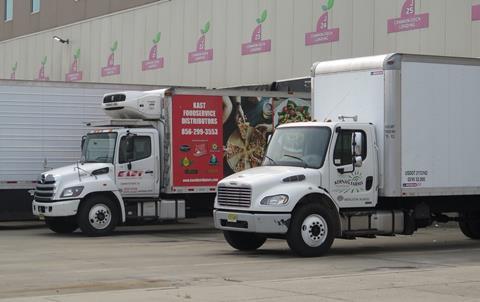Produce companies urged to plan now for future risk
Produce is a business full of risk, but companies often overlook a few key areas of vulnerability – particularly with contracts, supply chain disruptions and recalls.

“Transferring title, possession, and risk of loss are crucial considerations in the produce business,” says Katy Koestner Esquivel of Naples, Florida-based Esquivel Law Chartered. “Also important to look at are indemnity clauses and scope of liability, clearly defined Force Majeure Clauses, and pricing and payment terms.”
Esquivel is one of several experts who will be sharing their insight and knowledge in Miami on 1 October at a workshop on Produce Blind Spots, which takes place at the Hilton Miami Airport from 09:00-11:30.
With the ongoing threat of port labour strikes, companies should be preparing to protect against further supply chain disruption both logistically as well as contractually.
“The looming threat of strikes should mean companies have contingency plans already in place,” says Mike Laws of Laws Logistics, also in Naples. “Supply chain contingency planning should always be part of any company’s daily supply chain and logistics activities.”
Laws explains visible supply chain risk factors include weather issues, equipment failure, labour availability, tariff and geopolitical risks. “Other risks to the business include supply chain fraud, data interoperability, and supply chain fragmentation,” he says.
“Lack of awareness of supply chain fraud can cripple a business. Average cost to a company who is a victim of supply chain fraud is US$4.5m. Most companies fail to regularly review their supply chain activities and partnerships, resulting in slow or incorrect reactions to disruptions.”
Disruptions, disputes or misunderstandings directly impact the bottom line of any business. “Regardless of which party is ‘right,’ these disputes can disrupt all aspects of the supply chain,” says Esquivel.
“This goes from refusing to accept product shipped by the grower, to disputes about who has first priority to the proceeds of the sales, and what latitude a sales or marketing agent may have in selling the product.”
Exposure in the event of a recall or product liability is also an increasing threat if not properly protected against.
“While insurance coverage capacity and policies are becoming more standardised, with enhanced terms and conditions, the need to get all stakeholders involved early and often has never been greater in food and produce,” says Christopher Tritt of Insurance Management Consultancy in Fort Myers, Florida. “Buyers and the evolution of the marketplace mostly operate in a zero-tolerance ecosystem.”
Tritt recommends companies do pre-event planning with tabletop mock events as well as have proper coordination of both first- and third-party coverage responses.
“An event involving your own product, or simply the commodity group in another state or region, can directly impact your income statement,” he says. “Any foodborne event involving illness could severely impact your balance sheet. For example, the 2020 Romaine lettuce recall in Arizona/Mexico had widespread impacts on the entire commodity group.”
With the changing industry, risk areas are becoming more complex – for example with production financing.
“It is increasingly commonplace and attractive for growers to take advantage of financing arrangements to secure cash flow throughout the season,” explains Esquivel. “As a result, they find themselves in a three-way agreement that sets forth the duties and obligations of the grower, the financing company, and the company selling and marketing the product. The rights, duties and security interests of each party must be clearly defined in the agreements to avoid conflicting provisions.”
Ultimately, in all stages of the production, distribution and sale of fresh produce, it is essential to have clearly defined rights, duties and responsibilities of the parties involved states Esquivel.
“Whether that is in the context of two friends who decide to grow a crop together, or in the context of importing and sale of foreign product to domestic retailers, it is critical to clearly define the roles of all stakeholders,” she says. “Businesses should seek to identify and minimise those risks through careful and precise contracting, advice and guidance.”
During the workshop, Esquivel will be speaking about contracting essentials for domestic and international growers, FSMA 204, PACA trust enforcement and PACA trust rights. Tritt will explain how structuring essential first- and third-party coverage enhancements have direct bottom-line impacts. Laws will address key solutions for evaluating and tackling supply chain risks.



